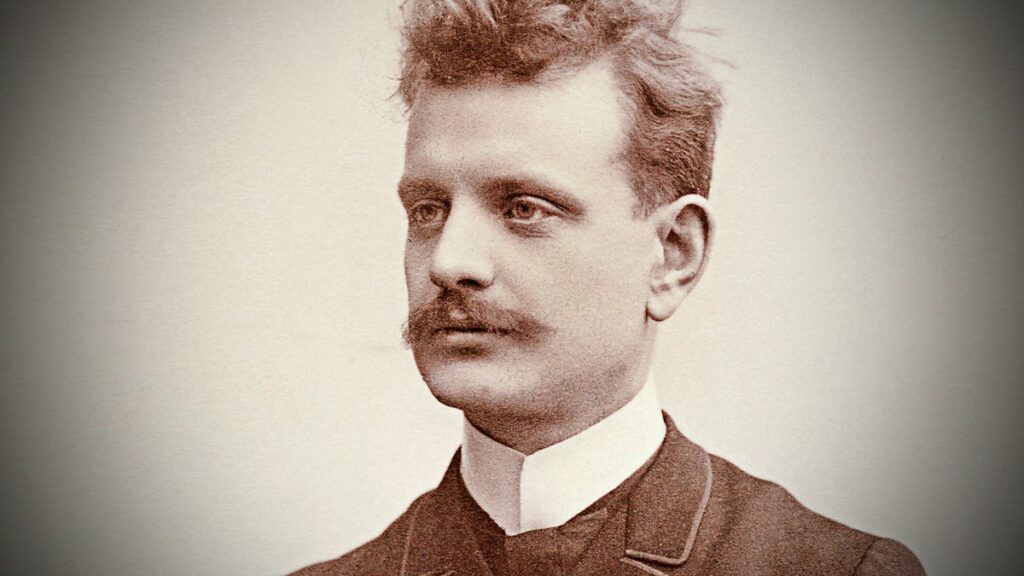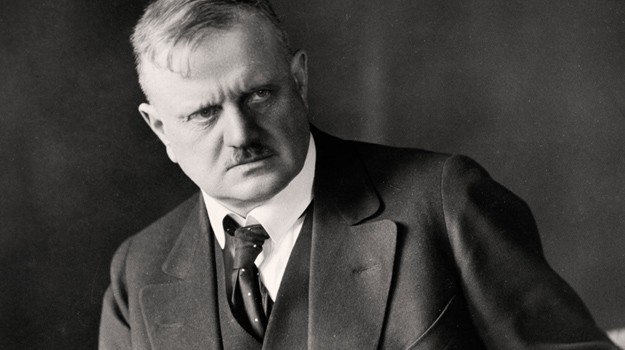
17 Jul Who was Sibelius
So, who was Sibelius? Delve into the intriguing life of Jean Sibelius, a man whose name is synonymous with classical music and whose compositions continue to reverberate through concert halls worldwide. We will begin with Sibelius’s humble beginnings in Finland, through his educational years where the seeds of his musical genius were sown. We’ll explore his foray into the world of music, a realm he would come to dominate with his extraordinary compositions, forever leaving his mark on the classical genre. We’ll examine the masterpieces that emerged from Sibelius’s quill, pieces that continue to inspire and influence musicians and composers alike.
From the intimate details of his personal life and family, to the enduring legacy he left behind, we will take a comprehensive look at the man behind the music. As we delve into his twilight years, we’ll reflect on the everlasting memory of Sibelius, a man whose life was as remarkable as the symphonies he composed. So, sit back, perhaps with a cup of tea (or a Finnish ‘salmiakki’ if you’re feeling adventurous), and immerse yourself in the life and times of Sibelius, a true maestro whose symphonies continue to echo through the ages.
The Early Life and Education of Sibelius
Born on December 8, 1865, in Hämeenlinna, Finland, Johan Julius Christian Sibelius, known as Jean Sibelius, was the second of three children. His father, a military doctor, passed away when Sibelius was only three years old, leaving his mother to raise the family. Despite the undefined hardships of his early life, Sibelius showed a strong interest in music from a young age. He began violin lessons at the age of nine and soon started composing his own music. His passion for music led him to study at the Helsinki Music Institute, now known as the Sibelius Academy, where he honed his skills in violin and composition. His education further continued in Berlin and Vienna where he was exposed to the works of Richard Wagner, a significant influence in his compositions.
Sibelius’s Journey into the World of Music
As a young boy, Jean Sibelius found his passion for music through violin lessons. His talent was unmistakable, and he soon began composing his own pieces. His journey into the world of music was not always smooth, but his determination and love for the art form saw him through. He studied at the Helsinki Music Institute (now the Sibelius Academy), where he honed his skills and developed his unique style. His compositions, such as the symphonic poem ‘Finlandia’, have left an indelible mark on the world of classical music. Sibelius’s music is characterised by his innovative use of symphonic structure and his deep connection to Finnish nationalism. His works continue to be celebrated and performed by orchestras around the world. Tip: For those interested in exploring Sibelius’s music, a good starting point is his Symphony No. 2, which showcases his ability to create complex, emotive soundscapes. For further listening, take a listen to these orchestrations, by The Awakened Soul.
The Remarkable Compositions of Sibelius
Among the pantheon of great composers, Jean Sibelius holds a unique place. His compositions, deeply rooted in his Finnish heritage, have left an indelible mark on the world of classical music. His symphonies, in particular, are renowned for their distinctive style and profound emotional depth. The Symphony No. 2 and Symphony No. 5 are often cited as his most significant works, each showcasing his innovative approach to symphonic form and his masterful orchestration.
When compared to his contemporaries, Sibelius’s music stands out for its nationalistic flavour and its evocative power. For instance, his tone poem ‘Finlandia’ is not just a piece of music; it is a symbol of Finnish identity and resistance. Similarly, his violin concerto, one of the most challenging and rewarding in the repertoire, is a testament to his ability to blend virtuosic display with profound musical expression.
| Composition | Year | Key Features |
|---|---|---|
| Symphony No. 2 | 1902 | Distinctive style, profound emotional depth |
| Symphony No. 5 | 1915 | Innovative approach to symphonic form, masterful orchestration |
| Finlandia | 1899 | Symbol of Finnish identity and resistance |
| Violin Concerto | 1904 | Blend of virtuosic display with profound musical expression |
Sibelius’s Influence on Classical Music
Undeniably, Jean Sibelius has left an incredible mark on the world of classical music. His unique compositional style, which was deeply rooted in his Finnish heritage, has had a profound influence on many composers and musicians. His symphonies and tone poems, filled with rich melodies and innovative orchestration, have become staples in the classical music repertoire. Sibelius’s music, with its evocative and atmospheric qualities, has often been associated with the landscapes and folklore of his native Finland, thereby contributing to the national identity of the country.
However, Sibelius’s influence is not without its criticisms. Some critics argue that his music lacks the complexity and intellectual rigour of his contemporaries. His emphasis on melody and atmosphere, they contend, often comes at the expense of structural and harmonic innovation. Despite these criticisms, the impact of Sibelius’s music cannot be understated. His works continue to be performed and recorded by leading orchestras and musicians around the world, and his influence can be heard in the music of many contemporary composers. These neoclassical pieces have been inspired by many fathers of composition.

The Personal Life and Family of Sibelius
Stepping away from the public persona, we find a man deeply rooted in his family life. Sibelius was married to Aino Järnefelt, a woman who came from a culturally significant family. Their union resulted in six daughters, namely Eva, Ruth, Kirsti, Katarina, Margareta, and Heidi. Aino’s unwavering support and understanding of her husband’s creative process played a crucial role in his career. Their home, Ainola, named after Aino, became a sanctuary for Sibelius, where he could compose his music in peace.
Despite his international fame, Sibelius was a family man at heart. His daughters were his greatest joy and he often composed pieces inspired by them. However, his personal life was not without tragedy. His youngest daughter, Kirsti, died at a very young age, an event that deeply affected him. Sibelius’s personal life was a tapestry of joy, love, and sorrow, all of which significantly influenced his musical compositions.
The Legacy of Sibelius: His Impact on Future Generations
It is impossible to discuss the evolution of 20th-century music without acknowledging the profound influence of Sibelius. His innovative approach to symphonic form and orchestration has left an impression on the musical world. His seven symphonies, in particular, have become staples of the orchestral repertoire, admired for their unique blend of Romantic lyricism and modernist innovation. His music has inspired countless composers, from his contemporaries such as Vaughan Williams and Prokofiev, to more recent figures like Esa-Pekka Salonen and Kaija Saariaho. Furthermore, his life and work have become a source of national pride in his native Finland, where his birthday is celebrated as a national holiday, known as ‘Flag Day’. Here is a checklist of his significant contributions:
- Innovative approach to symphonic form and orchestration
- Influence on contemporaries and future generations of composers
- Contribution to the orchestral repertoire with his seven symphonies
- Role as a symbol of national pride in Finland
Sibelius’s Final Years and His Everlasting Memory
Despite the decline in his creative output during his final years, Sibelius remained a significant figure in the world of music. His decision to stop composing was met with mixed reactions. On the one hand, it was seen as a loss to the music world, as his compositions were highly regarded for their originality and depth. On the other hand, it allowed him to focus on his personal life and health, which had been suffering due to his intense dedication to his work.
His legacy, however, is evident. Sibelius’s music continues to be performed and admired worldwide. His influence on subsequent generations of composers is profound, with many citing him as a major inspiration. Yet, his work has also been criticised for its complexity and perceived lack of accessibility. Some argue that his music, while technically brilliant, does not resonate with the average listener. This, however, is a subjective viewpoint and does not detract from the overall impact of his contributions.
In the end, the memory of Sibelius is one of a gifted composer who pushed the boundaries of music. His life was marked by both triumphs and struggles, but through it all, his passion for music remained unwavering. His final years may have been quiet, but his legacy continues to reverberate through the halls of music history, a testament to his enduring influence and the power of his compositions.
Frequently Asked Questions
What was Sibelius’s most significant contribution to classical music?
Sibelius’s most significant contribution to classical music was his ability to infuse Finnish national identity into his compositions. His symphonies and tone poems, such as “Finlandia,” are considered masterpieces of late Romantic music and have had a profound influence on the development of the symphony and symphonic poem.
What challenges did Sibelius face in his musical career?
Sibelius faced several challenges in his musical career, including the struggle to gain recognition outside of his native Finland. He also faced personal challenges, such as his battle with alcoholism, which affected his productivity and personal relationships.
How did Sibelius’s personal life influence his music?
Sibelius’s personal life greatly influenced his music. His deep love for his homeland, Finland, is reflected in many of his compositions. His struggles with alcoholism and depression also influenced his work, often leading to darker, more introspective pieces.
What is Sibelius’s legacy in the world of classical music?
Sibelius’s legacy in the world of classical music is immense. He is considered one of the greatest composers of the late Romantic era. His innovative approach to symphonic form and his ability to evoke the spirit of his native Finland in his music have had a lasting impact on classical music. His influence on the musical world extends to software that has been created using his name e.g. the Sibelius Software
How is Sibelius remembered today?
Sibelius is remembered today as one of the greatest composers of his time. His music continues to be performed and recorded by orchestras around the world. In Finland, he is a national hero, and his home is now a museum dedicated to his life and work.

